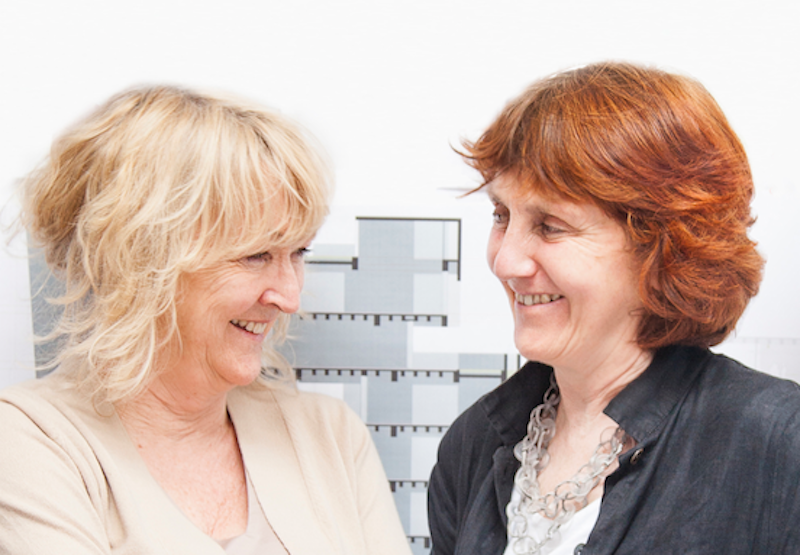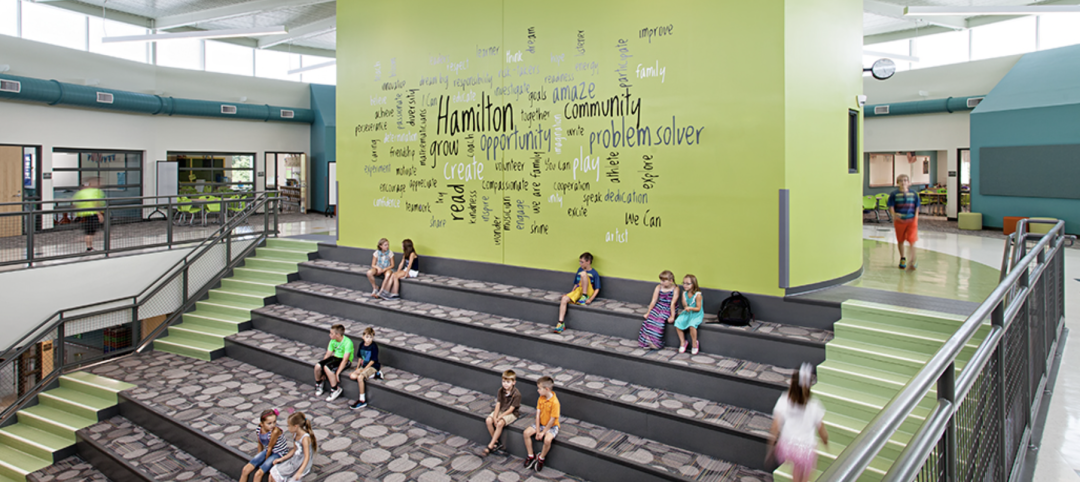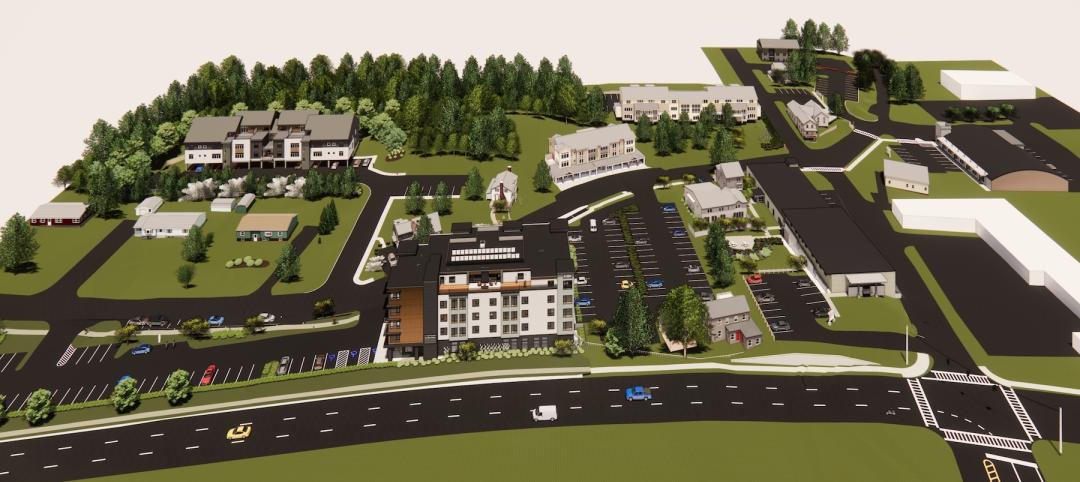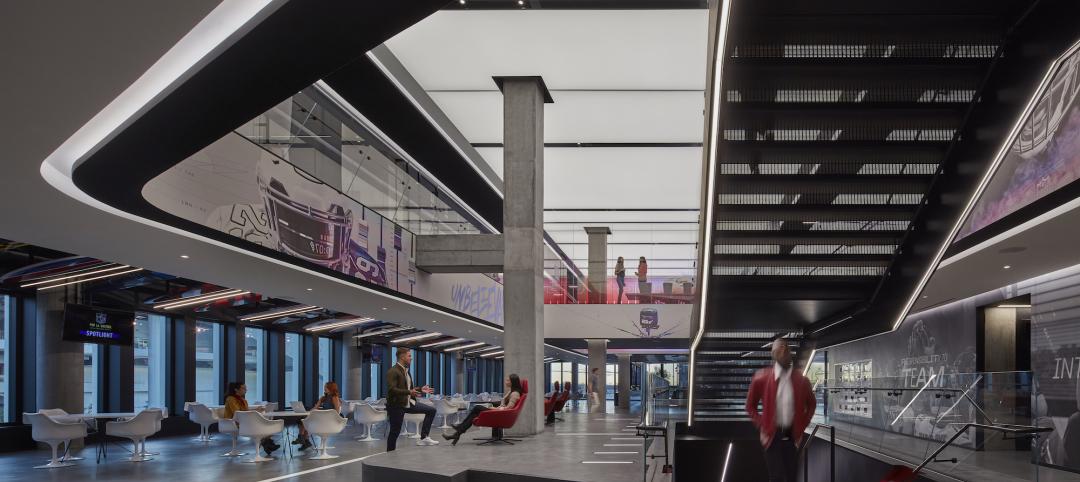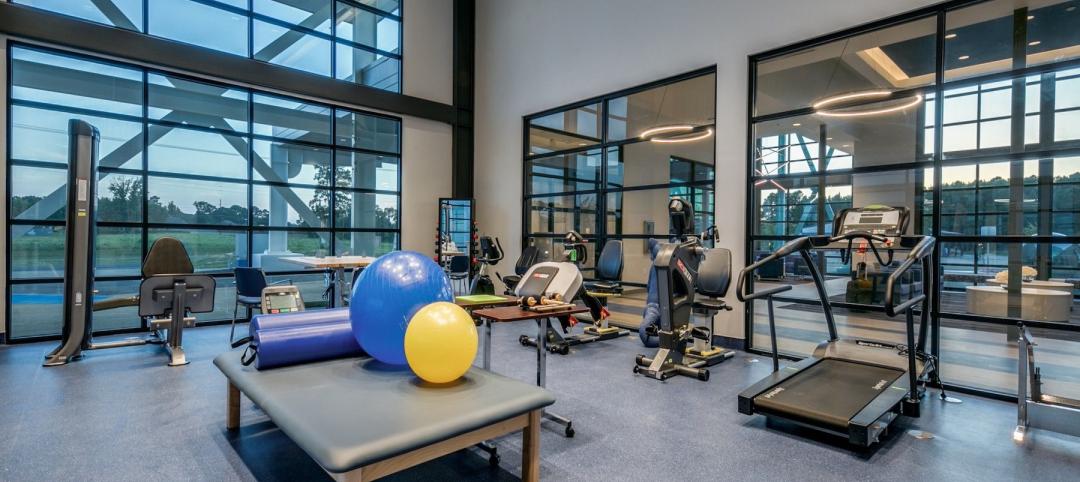Yvonne Farrell and Shelley McNamara of Dublin, Ireland, have been selected as the 2020 Pritzker Prize Laureates, announced Tom Pritzker, Chairman of The Hyatt Foundation, which sponsors the award that is known internationally as architecture’s highest honor.
“Architecture could be described as one of the most complex and important cultural activities on the planet,” remarks Farrell. “To be an architect is an enormous privilege. To win this prize is a wonderful endorsement of our belief in architecture. Thank you for this great honor.”
As architects and educators since the 1970s, Farrell and McNamara create spaces that are at once respectful and new, honoring history while demonstrating a mastery of the urban environment and craft of construction. Balancing strength and delicacy, and upholding a reverence of site-specific contexts, their academic, civic and cultural institutions, as well as housing developments, result in modern and impactful works that never repeat or imitate, but are decidedly of their own architectural voice.
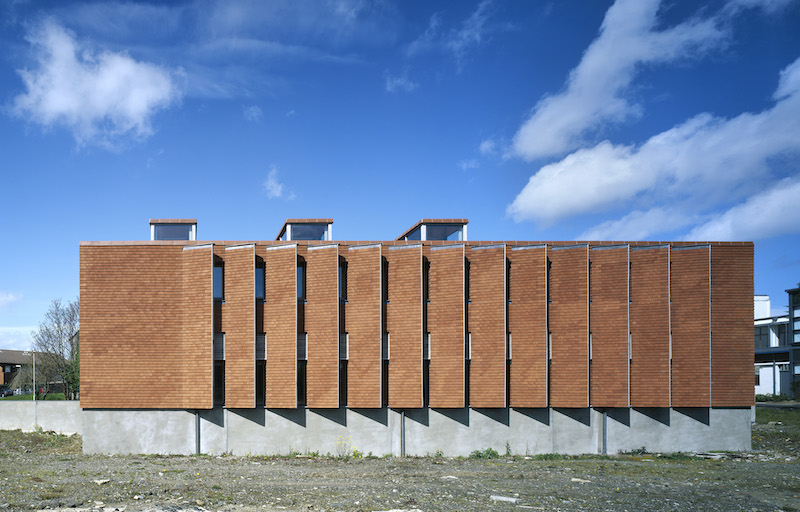 Urban Institute of Ireland. Photo: Ros Kavanagh.
Urban Institute of Ireland. Photo: Ros Kavanagh.
“For their integrity in their approach to both their buildings, as well as the way they conduct their practice, their belief in collaboration, their generosity towards their colleagues, especially as evidenced in such events as the 2018 Venice Biennale, their unceasing commitment to excellence in architecture, their responsible attitude toward the environment, their ability to be cosmopolitan while embracing the uniqueness of each place in which they work, for all these reasons and more, Yvonne Farrell and Shelley McNamara are awarded the 2020 Pritzker Architecture Prize,” states the 2020 Jury Citation, in part.
“Within the ethos of a practice such as ours, we have so often struggled to find space for the implementation of such values as humanism, craft, generosity, and cultural connection with each place and context within which we work. It is therefore extremely gratifying that this recognition is bestowed upon us and our practice and upon the body of work we have managed to produce over a long number of years,” says McNamara. “It is also a wonderful recognition of the ambition and vision of the clients who commissioned us and enabled us to bring our buildings to fruition.”
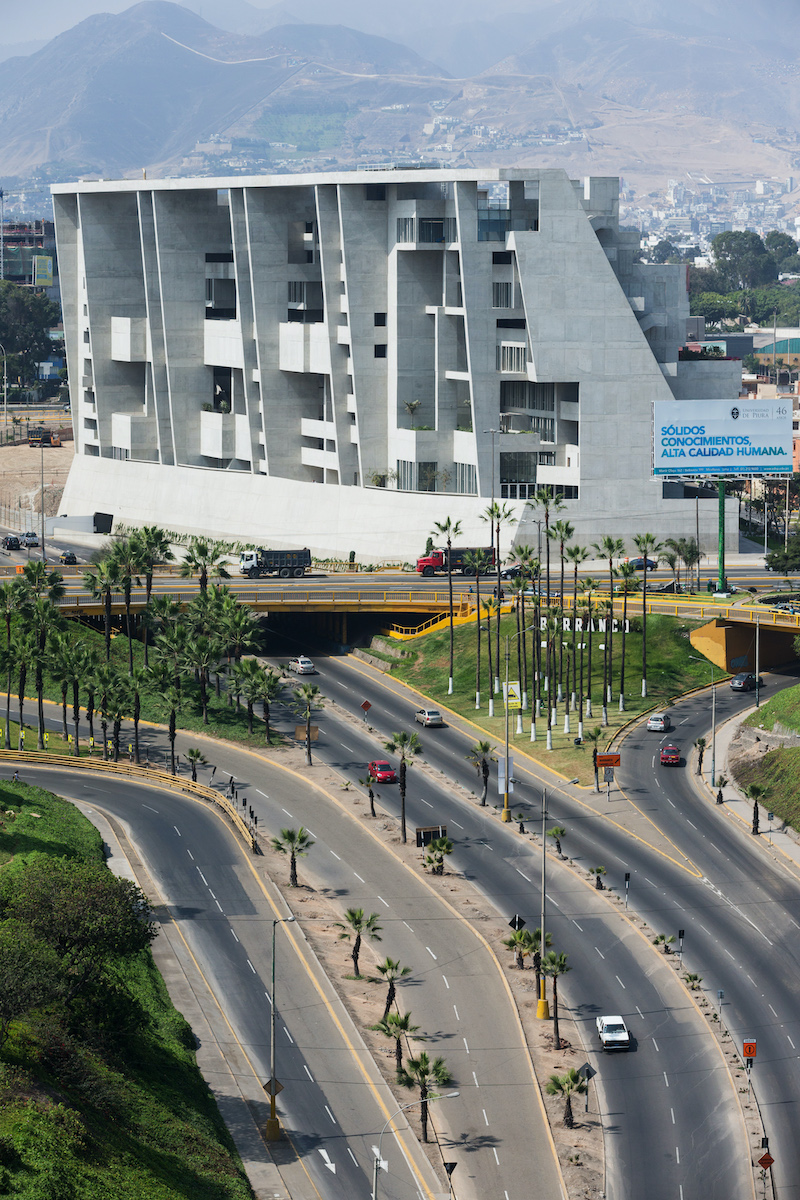 University Campus UTEC Lima. Photo: Iwan Baan.
University Campus UTEC Lima. Photo: Iwan Baan.
Their native Ireland, an island replete with mountains and cliffs, informs their acute sensitivities to geography, changing climates and nature in each of their sites. Their buildings consistently remain purposefully rich, yet modest, enhancing cities and lending to sustainability while responding to local needs. University Campus UTEC Lima (Lima, Peru 2015) is located on a challenging site with a highway sunk in a ravine on one side and a residential neighborhood on the other. The result is a vertical and cascading building responding to both site and climatic needs. Its open spaces were designed to deliberately welcome cooling breezes of the ocean and minimize the need for air-conditioning. At the Offices for the Department of Finance (Dublin, Ireland 2009), the selection of local limestone used in thick panels grants strength to the building. Windows recessed or flush with the façade have grills below them to circulate fresh air throughout the building. Exposures on all sides of the building, atypical of the architecture in this city, offer panoramic views.
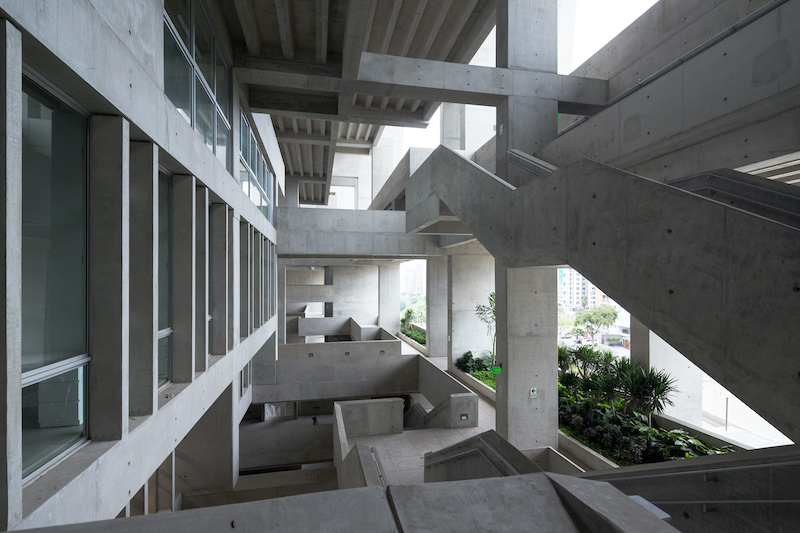 University Campus UTEC Lima. Photo: Iwan Baan.
University Campus UTEC Lima. Photo: Iwan Baan.
The architects are continuously conscious of the dialogue between the internal and external, evidenced by the mingling of public and private spaces, and the meaningful selection and integrity of materials. “What we try to do in our work is to be aware of the various levels of citizenship and try to find an architecture that deals with overlap, that heightens your relationship to one another,” illustrates Farrell. Universita Luigi Bocconi (Milan, Italy 2008) fosters community between its occupants and the vibrant city that extends well beyond the vertical campus through its ground floor public space, which continues indoors, and its floating canopy that overlaps the ground below, engaging passersby with students. Université Toulouse 1 Capitole, School of Economics (Toulouse, France 2019) is encased in concrete and stone that has been quarried from nearby Lake Iseo. Its brick buttresses, ramps and courtyards are a metaphor for the city filled with bridges, walls, promenades and stone towers. North King Street Housing (Dublin, Ireland 2000) is intentionally void of external design elements to resonate with the restraint of the neighboring warehouses.
“The collaboration between Yvonne Farrell and Shelley McNamara represents a veritable interconnectedness between equal counterparts,” states Pritzker. “They demonstrate incredible strength in their architecture, show deep relation to the local situation in all regards, establish different responses to each commission while maintaining the honesty of their work, and exceed the requirements of the field through responsibility and community.”
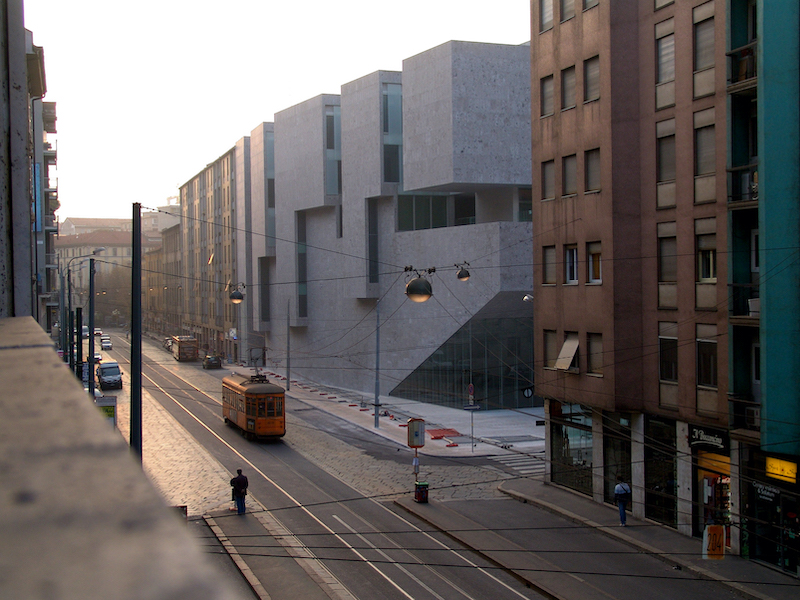 Universita Luigi Bocconi. Photo: Federico Brunetti.
Universita Luigi Bocconi. Photo: Federico Brunetti.
Farrell and McNamara have mastered proportion to maintain a human scale and achieve intimate environments within tall and vast buildings. “They have tried, with considerable success, to help us all overcome what is likely to evermore become a serious human problem,” explains Justice Stephen Breyer, Jury Chair. “Namely, how do we build housing and workplaces in a world with over half of its population dwelling in urban environments, and many of them who cannot afford luxury?” A contoured theater floor at the Solstice Arts Centre (Navan, Ireland 2008) creates a physical nearness between audience members and performers. The generous placement of open spaces, windows, glass curtain walls and exposed ceilings allows natural light to filter through a passage of
rooms, creating impressions of light through large and small spaces, and within the interlocking areas that compose Institut Mines Télécom in Palaiseau (Paris, France 2019).
McNamara states, “Architecture is a framework for human life. It anchors us and connects us to the world in a way which possibly no other space-making discipline can.” Farrell continues, “At the core of our practice is a real belief that architecture matters. It is a cultural spatial phenomenon that people invent.”
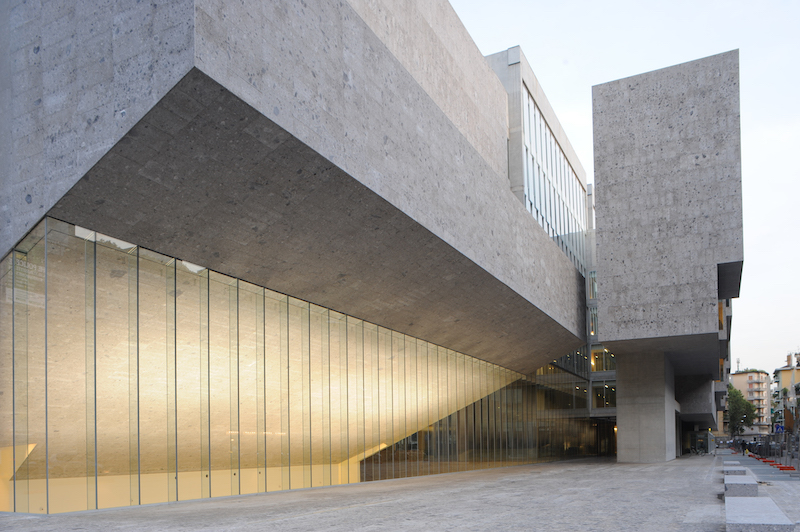 Universita Luigi Bocconi. Photo: Federico Brunetti.
Universita Luigi Bocconi. Photo: Federico Brunetti.
The pair established Grafton Architects in 1978 in Dublin, where they continue to practice and reside. In just over forty years, they have completed nearly as many projects, located in Ireland, the United Kingdom, France, Italy and Peru.
See Also: Arata Isozaki named 2019 Pritzker Architecture Prize Laureate
Farrell and McNamara are the 47th and 48th Laureates of the Pritzker Prize, and the first two recipients from Ireland.
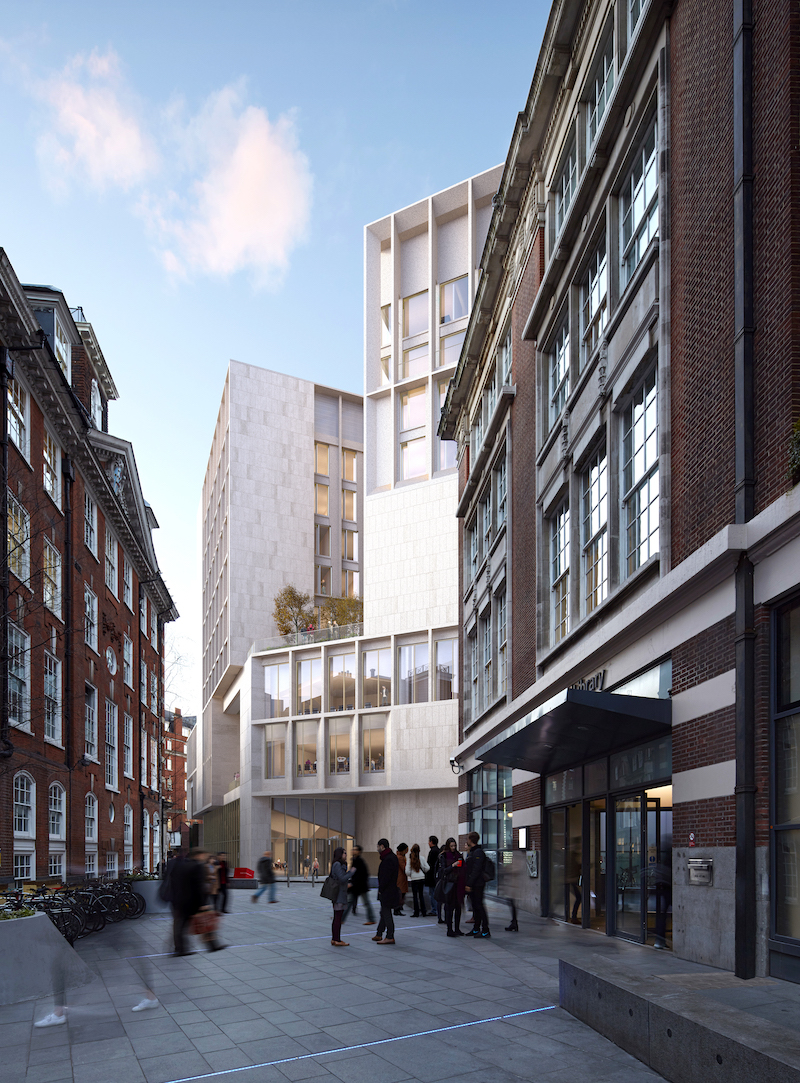 London School of Economics and Political Science. Photo: Grafton Architects.
London School of Economics and Political Science. Photo: Grafton Architects.
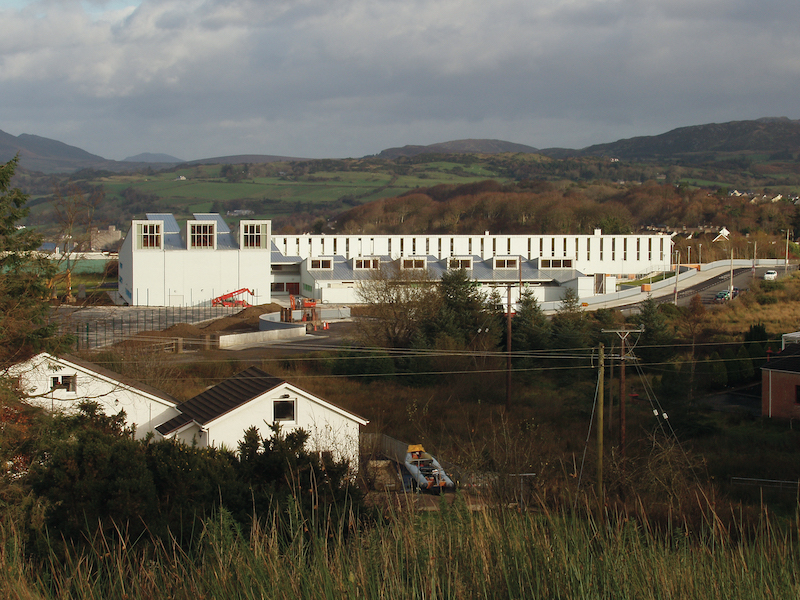 Loreto Community School. Photo: Ros Kavanagh.
Loreto Community School. Photo: Ros Kavanagh.
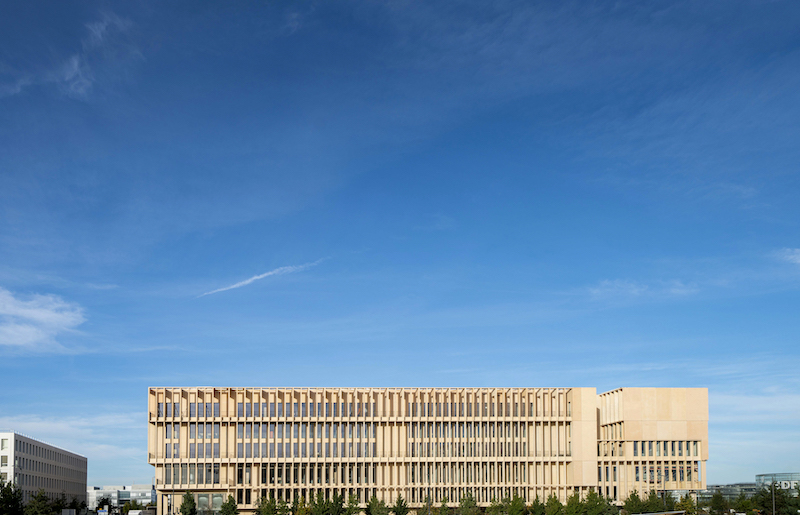 Institut Mines Télécom. Photo: Alexandre Soria.
Institut Mines Télécom. Photo: Alexandre Soria.
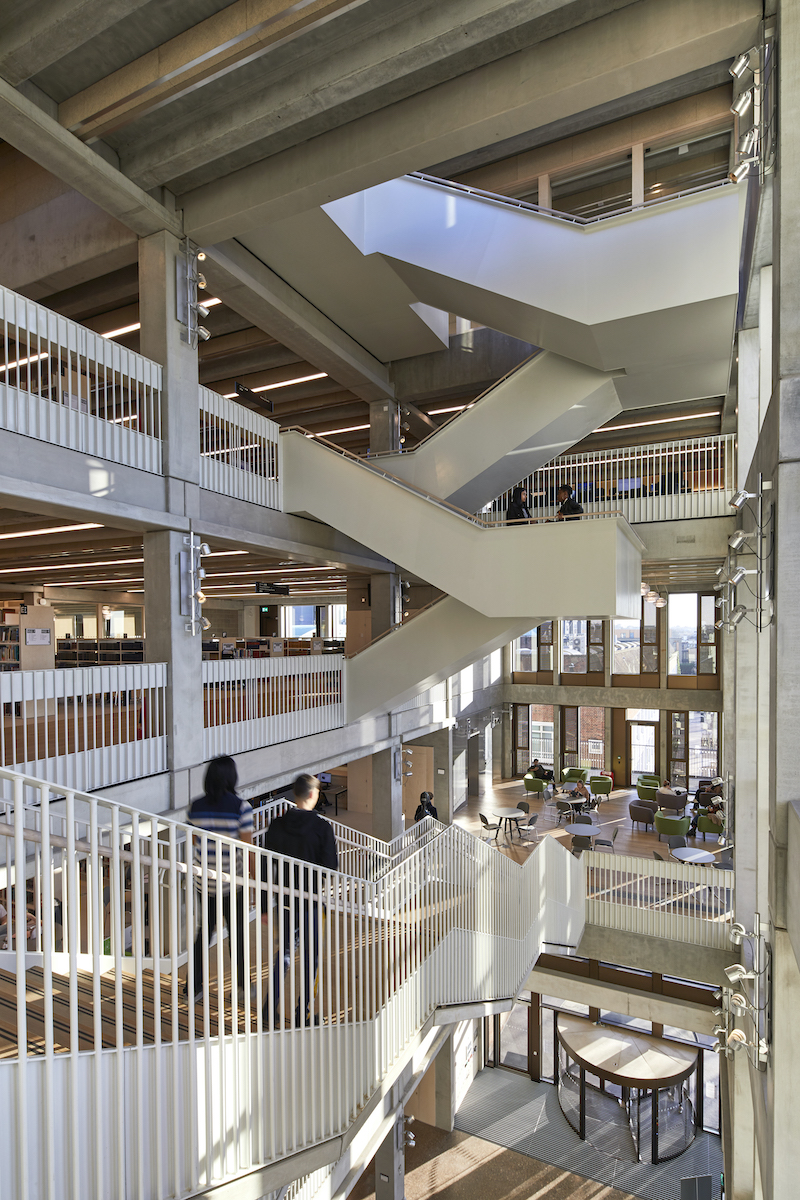 Town House Building, Kingston University. Photo: Ed Reeves.
Town House Building, Kingston University. Photo: Ed Reeves.
Related Stories
Education Facilities | Nov 30, 2022
10 ways to achieve therapeutic learning environments
Today’s school should be much more than a place to learn—it should be a nurturing setting that celebrates achievements and responds to the challenges of many different users.
75 Top Building Products | Nov 30, 2022
75 top building products for 2022
Each year, the Building Design+Construction editorial team evaluates the vast universe of new and updated products, materials, and systems for the U.S. building design and construction market. The best-of-the-best products make up our annual 75 Top Products report.
K-12 Schools | Nov 30, 2022
School districts are prioritizing federal funds for air filtration, HVAC upgrades
U.S. school districts are widely planning to use funds from last year’s American Rescue Plan (ARP) to upgrade or improve air filtration and heating/cooling systems, according to a report from the Center for Green Schools at the U.S. Green Building Council. The report, “School Facilities Funding in the Pandemic,” says air filtration and HVAC upgrades are the top facility improvement choice for the 5,004 school districts included in the analysis.
Architects | Nov 29, 2022
Three decades and counting, Tinkelman Architecture has helped reshape New York’s Hudson Valley
The full-service firm has designed more than 100 projects in this region, including several multifamily buildings currently in the works
Retail Centers | Nov 29, 2022
'Social' tenants play a vital role in the health of the retail center market
After a long Covid-induced period when the public avoided large gatherings, owners of malls and retail lifestyle centers are increasingly focused on attracting tenants that provide opportunities for socialization. Pent-up demand for experiences involving gatherings of people is fueling renovations and redesigns of large retail developments.
Giants 400 | Nov 28, 2022
Top 200 Office Sector Architecture and AE Firms for 2022
Gensler, Perkins and Will, Stantec, and HOK top the ranking of the nation's largest office sector architecture and architecture/engineering (AE) firms for 2022, as reported in Building Design+Construction's 2022 Giants 400 Report.
Legislation | Nov 23, 2022
7 ways the Inflation Reduction Act will impact the building sector
HOK’s Anica Landreneau and Stephanie Miller and Smart Surfaces Coalition’s Greg Kats reveal multiple ways the IRA will benefit the built environment.
Multifamily Housing | Nov 22, 2022
10 compelling multifamily developments debut in 2022
A smart home tech-focused apartment complex in North Phoenix, Ariz., and a factory conversion to lofts in St. Louis highlight the notable multifamily developments to debut recently.
Digital Twin | Nov 21, 2022
An inside look at the airport industry's plan to develop a digital twin guidebook
Zoë Fisher, AIA explores how design strategies are changing the way we deliver and design projects in the post-pandemic world.
Healthcare Facilities | Nov 17, 2022
Repetitive, hotel-like design gives wings to rehab hospital chain’s rapid growth
The prototype design for Everest Rehabilitation Hospitals had to be universal enough so it could be replicated to accommodate Everest’s expansion strategy.


